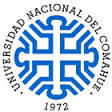El siguiente trabajo se propone analizar la novela Las aventuras de la China Iron(2017) de Gabriela Cabezón Cámara desde una perspectiva queer, a partir de los planteos de la filósofa Judith Butler. Por un lado, se postula que la obra literaria posee algunas líneas de análisis factibles de ser trabajadas desde las diferentes categorías de Butler. Por otro lado, la teoría butleriana encuentra casos interesantes en los personajes del libro para reflexionar acerca de algunas de sus nociones, entre ellas, la ‘performatividad del género’, la ‘matriz de inteligibilidad heterosexual’, los cuerpos abyectos, la vulnerabilidad, la ‘precariedad’/’precaridad’. Recientemente se ha producido un giro ético en la teoría de Judith Butler en tanto propone una nueva ontología corporal que permita ampliar los derechos sociales de todos los sujetos. Su crítica a la necesaria producción de sujetos abyectos para mantener y producir la ‘matriz de inteligibilidad heterosexual’la llevó a preguntarse por la vulnerabilidad de ciertos cuerpos, que se traduce en diferentes formas de opresión y olvido. En la novela de Cabezón Cámara, los sujetos que subvierten o se desplazan de dicha ‘matriz’logran establecer lazos afectivo-corporales que parecerían presentar una línea de fuga respecto a los sujetos producidos por la ‘matriz’. Finalmente, forman toda una comunidad de seres disidentes de la heteronorma. En esa sociedad todos los cuerpos importan, pues la inteligibilidad no es producida por la ‘matriz’. Este libro, entonces, puede ser un caso de una nueva ontología corporal, como propone Butler.
The following work aims to analyze the novel Las aventuras de la China Iron(2017) by Gabriela Cabezón Cámara from a queer perspective, based on the ideas of the philosopher Judith Butler. On one side, it is postulated that the book has some lines of analysis that can be worked from the different Butler’scategories. On the other side, butlerian theory finds interesting cases in the characters of the novel to reflect on some of its notions, among them, the ‘performativity of gender’, the ‘matrix of heterosexual intelligibility’, abject bodies, vulnerability, ‘precariousness’ / ‘precarity’.Recently, there has been an ethical turn in Judith Butler's theory as she proposes a new bodily ontology that allows the social rights of all subjects to be expanded. Her criticism of the necessary production of abject subjects to maintain and produce the ‘matrix of heterosexual intelligibility’ led her to wonder about the vulnerability of certain bodies, which translates into different forms of oppression and forgetfulness. In Cabezón Cámara's novel, the individuals who subvert or move from such ‘matrix’ manage to establish affective-bodily ties that seem to present a leakage line with respect to the subjects produced by the ‘matrix’. Finally, they form a whole community of dissident beings of the heteronorm. In that society all bodies matter because intelligibility is not produced by the ‘matrix’. This book, then, may be a case of a new body ontology, as Butler proposes.


